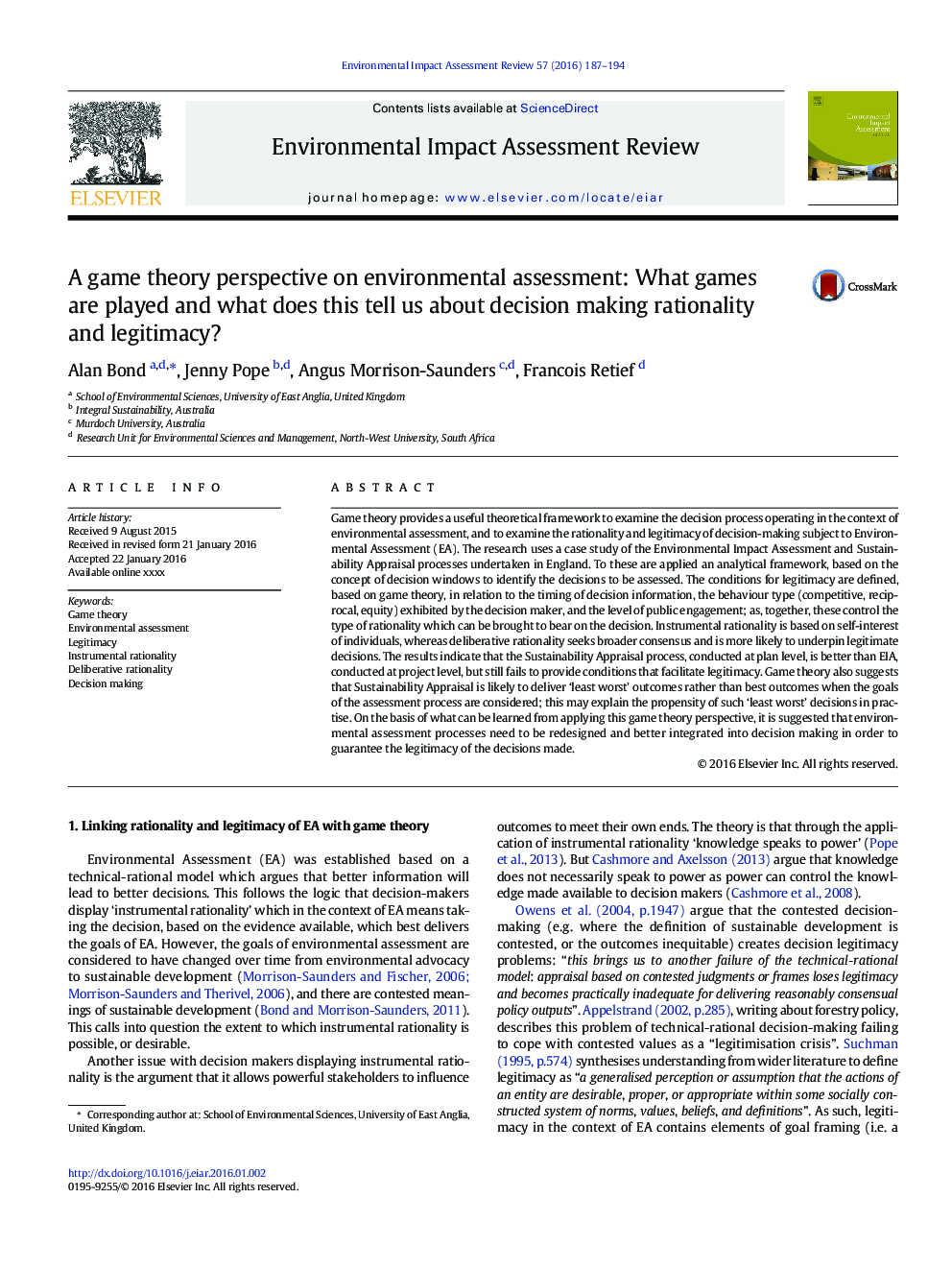| Article ID | Journal | Published Year | Pages | File Type |
|---|---|---|---|---|
| 7465198 | Environmental Impact Assessment Review | 2016 | 8 Pages |
Abstract
Game theory provides a useful theoretical framework to examine the decision process operating in the context of environmental assessment, and to examine the rationality and legitimacy of decision-making subject to Environmental Assessment (EA). The research uses a case study of the Environmental Impact Assessment and Sustainability Appraisal processes undertaken in England. To these are applied an analytical framework, based on the concept of decision windows to identify the decisions to be assessed. The conditions for legitimacy are defined, based on game theory, in relation to the timing of decision information, the behaviour type (competitive, reciprocal, equity) exhibited by the decision maker, and the level of public engagement; as, together, these control the type of rationality which can be brought to bear on the decision. Instrumental rationality is based on self-interest of individuals, whereas deliberative rationality seeks broader consensus and is more likely to underpin legitimate decisions. The results indicate that the Sustainability Appraisal process, conducted at plan level, is better than EIA, conducted at project level, but still fails to provide conditions that facilitate legitimacy. Game theory also suggests that Sustainability Appraisal is likely to deliver 'least worst' outcomes rather than best outcomes when the goals of the assessment process are considered; this may explain the propensity of such 'least worst' decisions in practise. On the basis of what can be learned from applying this game theory perspective, it is suggested that environmental assessment processes need to be redesigned and better integrated into decision making in order to guarantee the legitimacy of the decisions made.
Related Topics
Physical Sciences and Engineering
Energy
Renewable Energy, Sustainability and the Environment
Authors
Alan Bond, Jenny Pope, Angus Morrison-Saunders, Francois Retief,
